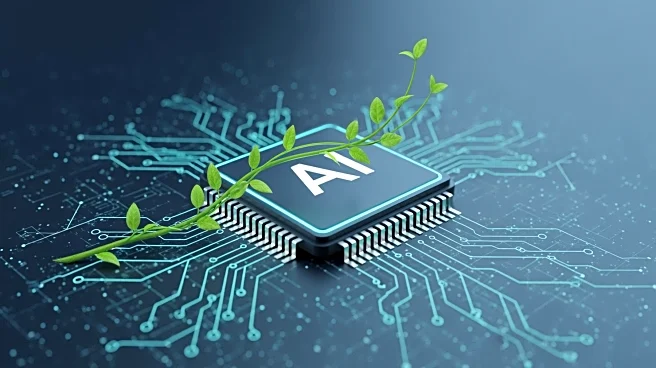What's Happening?
A study published in Nature examines the environmental impact of AI versus human programming using the USA Computing Olympiad (USACO) as a benchmark. The research involved comparing AI-generated Python code with human programming tasks, focusing on energy
consumption and environmental impact. The study utilized a multi-round correction process to improve AI code accuracy, highlighting the challenges of achieving functional output within time constraints. The environmental impact was assessed using life cycle assessment methods, considering both usage and embodied impacts of AI inference services.
Why It's Important?
This study sheds light on the environmental implications of AI programming, which is crucial as AI systems become more prevalent in various industries. Understanding the energy consumption and carbon footprint of AI versus human programming can inform sustainable practices in technology development. The findings may influence decisions on AI deployment, encouraging the use of more efficient models and practices to minimize environmental impact. This research also highlights the need for transparency in AI energy consumption and the importance of optimizing AI systems for sustainability.
What's Next?
Future research may focus on improving AI models to reduce energy consumption and environmental impact. Companies and developers might explore ways to enhance AI efficiency, potentially leading to new standards for sustainable AI practices. The study could prompt discussions on the balance between AI capabilities and environmental responsibility, influencing policy and industry standards.
Beyond the Headlines
The environmental impact of AI programming raises ethical questions about the sustainability of technology development. As AI systems become integral to various sectors, the need for environmentally responsible practices becomes more pressing. This study may contribute to broader discussions on the role of technology in climate change and the importance of sustainable innovation.

















